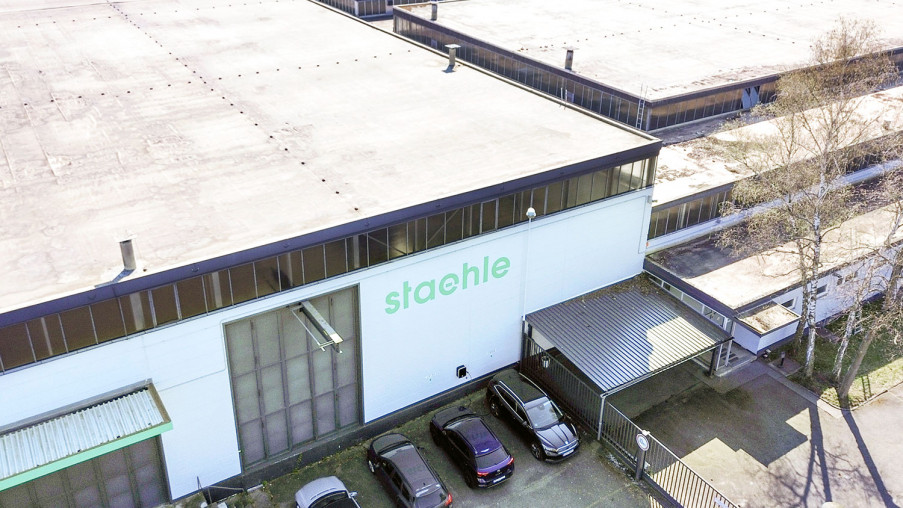Green energy balance: ENGIE Deutschland implements holistic energy concept for Staehle
- Staehle GmbH u. Co. KG, a leading German specialist for aerosol packaging, relies on the expertise of ENGIE Deutschland at its Schifferstadt site in Rhineland-Palatinate
- Thanks to a sustainable energy concept, the medium-sized company benefits from annual savings of around 1,700 megawatt hours of heat during the term of the contract
Cologne - In the sensitive production of aerosol packaging, the framework conditions must be optimal at all times. The Swabian family business Staehle, which manufactures aerosol cans in three shifts at its Schifferstadt plant, is therefore now relying on the energy expertise of ENGIE Deutschland. Marc Oliver Staehle, Managing Director at Staehle, says: "In Staehle's guiding principles, we are committed to protecting the environment, because sustainability plays a major role in our company. This includes using the best possible technology to increase our energy efficiency in a continuous improvement process. With ENGIE Deutschland in Schifferstadt, we now have the right competent partner on board.”
Sustainable use of industrial waste heat
Since the start of the project in fall 2024, the ENGIE Deutschland team has been responsible for a comprehensive energy concept - from planning and implementation with financing to a guarantee of success as part of an energy-saving contract with a term of five years. The initial situation at Staehle is characterized by similar factors to many industrial companies: A large amount of waste heat is released during the production processes, which was previously only used to a limited extent. At the same time, Staehle needs heat to heat the company buildings. This is why ENGIE Deutschland has opted for an approach that utilizes waste heat, as Daniel Münch, Head of Sales Energy Solutions at the Stuttgart branch and responsible for the project at ENGIE Deutschland, explains: "We at ENGIE Deutschland are delighted to have convinced Staehle of our sustainable concept: Instead of the previous 100 percent heat generation from fossil fuels, the company will benefit from up to 85 percent renewable heat generation via waste heat in the future." The specialists are currently implementing extensive technical measures to achieve this: At the Schifferstadt production site, the hall heating and process cooling supply will be renovated by September 2025 and a photovoltaic system with an output of 950 kilowatt peak installed. A heat pump uses low-temperature waste heat and generates process cooling at the same time. Furthermore, the waste heat from compressed air generation, thermal exhaust air purification and refrigeration is stored in large buffer tanks for hall heating during production downtimes. With the new concept, Staehle will save up to 1,675 megawatt hours of heat and up to 702 megawatt hours of electricity per year; this will result in a total reduction in CO2 emissions of around 850 tons and a saving in energy costs in the mid six-figure range per year - guaranteed for the five-year term of the contract. In addition, the use of waste heat is largely eligible for funding from the Federal Office of Economics and Export Control's (BAFA EEW) federal subsidy for energy and resource efficiency in industry. The ENGIE Deutschland team also supported Staehle with its many years of expertise in applying for the relevant funding - and is thus accompanying Staehle on the path to greater sustainability in line with the company's guiding principles.
Intelligent use of waste heat: ENGIE Deutschland implements a holistic energy concept for Staehle
Your contact
ENGIE Deutschland GmbH
